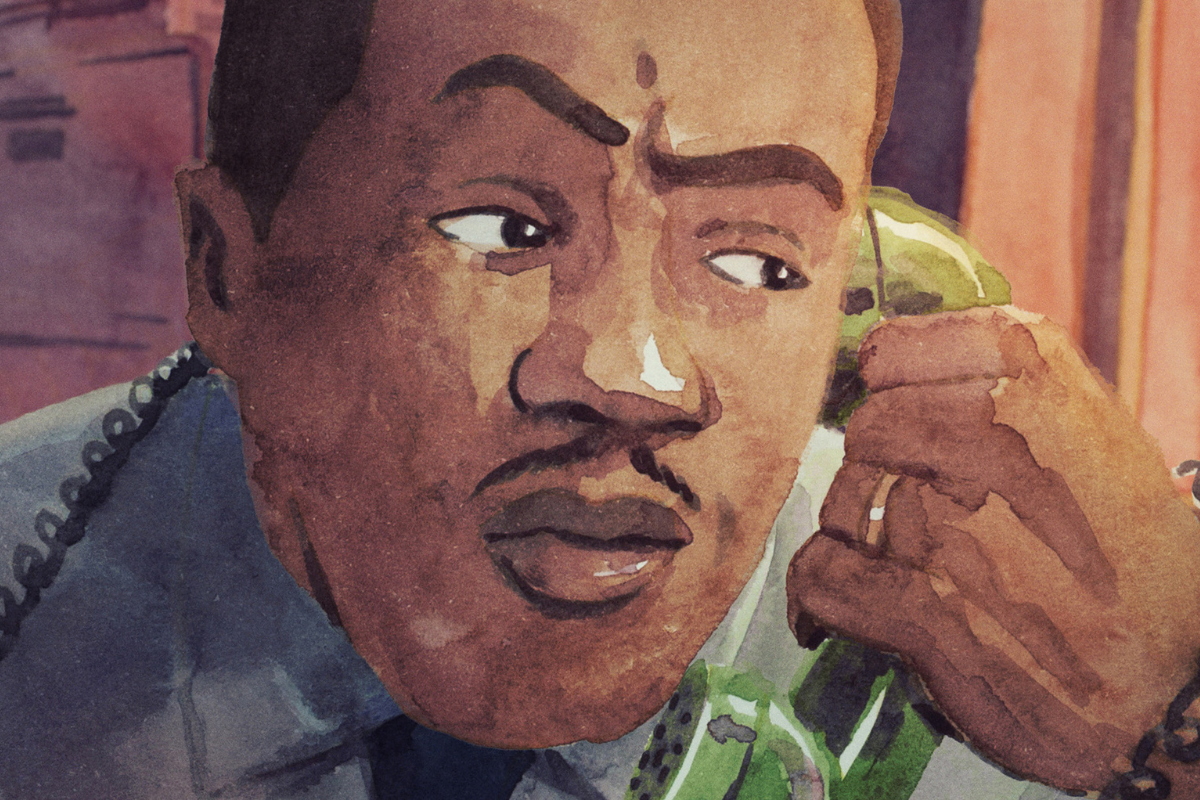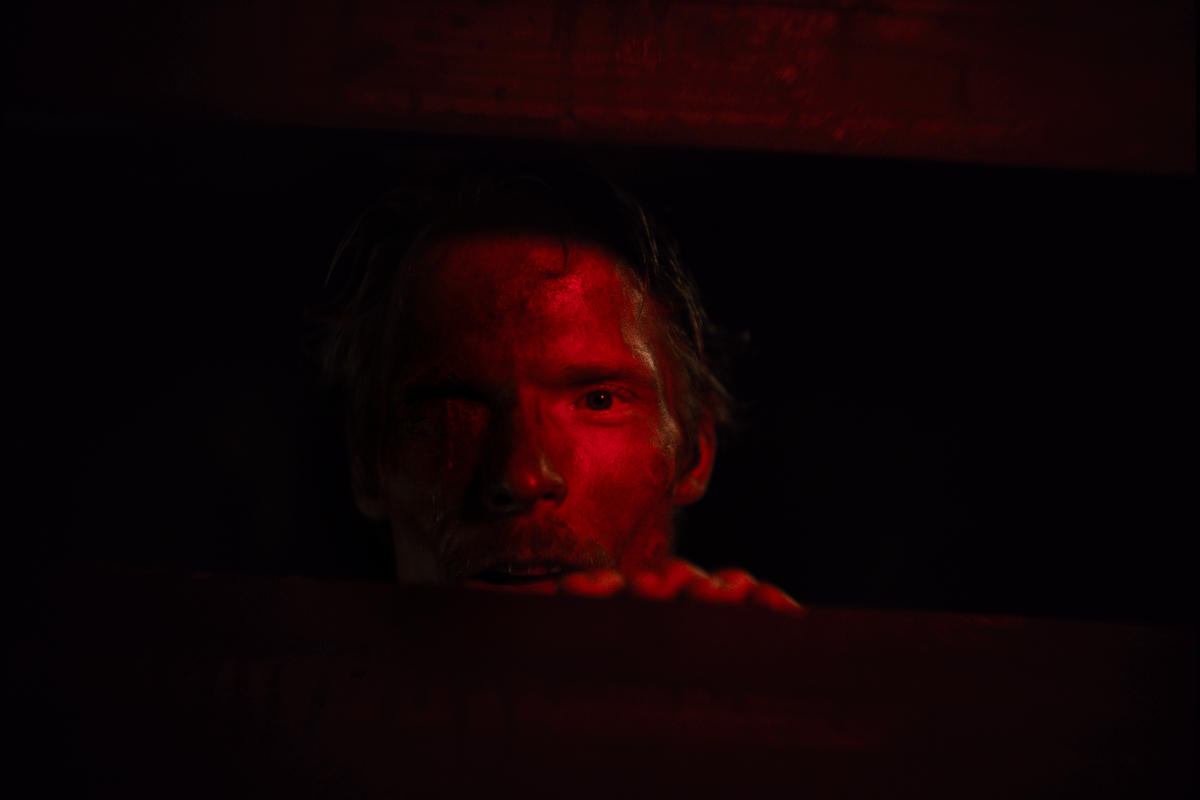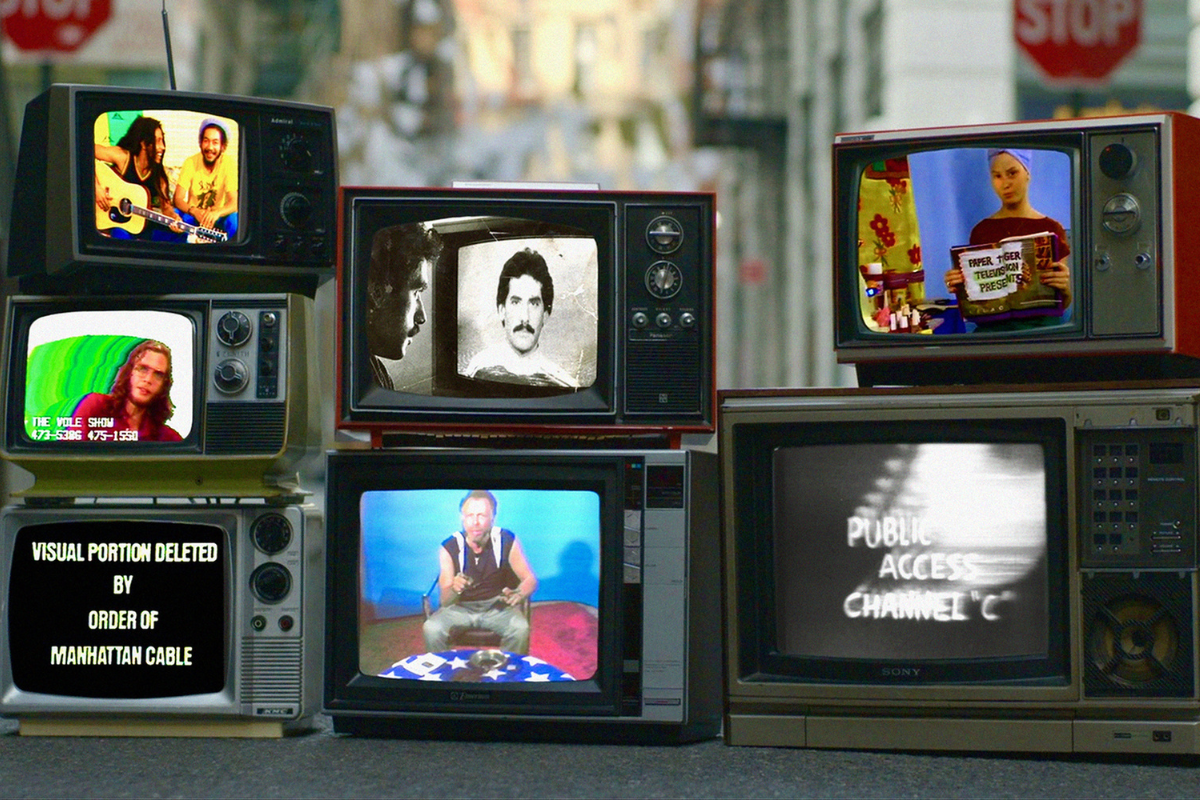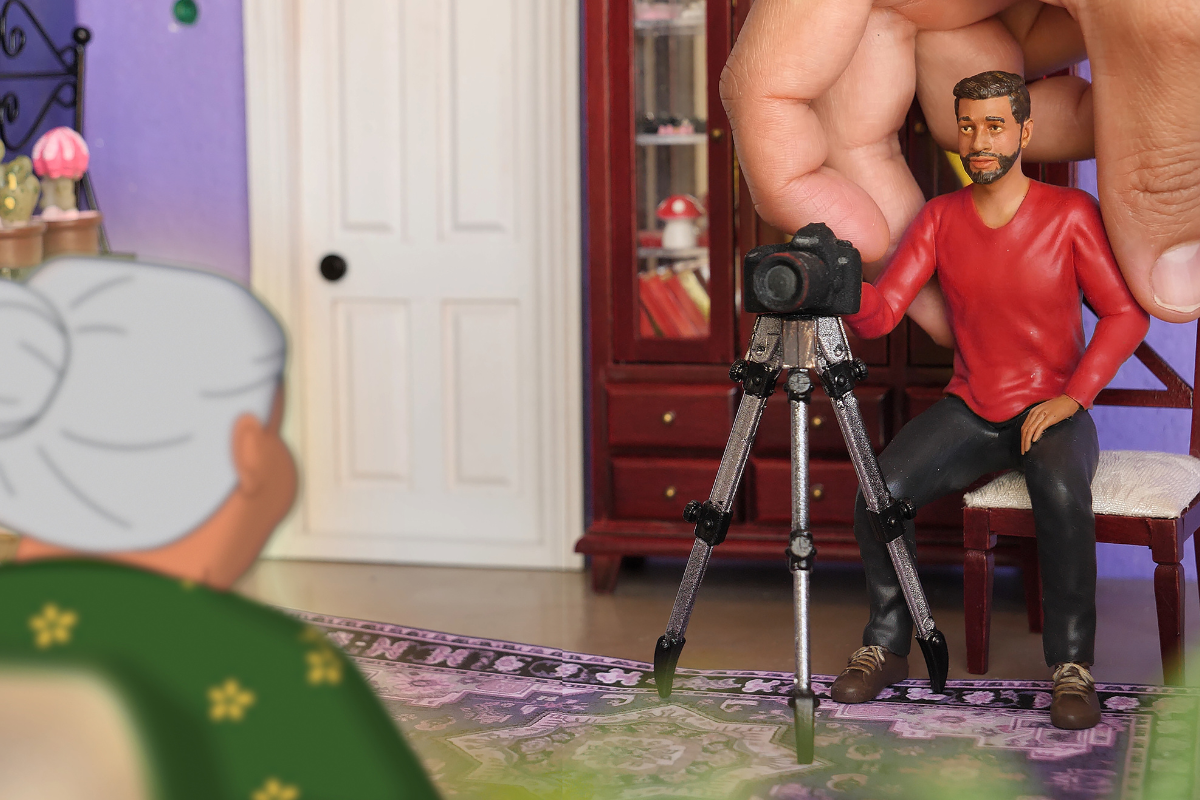INDIE SPOTLIGHT: An Interview with SXSW Short Film ‘Roommates’ Filmmakers Ashley Eakin, Kelsey Johnson and Actress Kiera Allen
‘Roommates’ director and co-writer Ashley Eakin, co-writer and actress Kelsey Johnson and actress Kiera Allen talk about their creative collaboration and journey, why it’s important to them to tell their stories and have these important conversations and representation about disability, and more!
Two college students, Izzy and Sophia get placed as dorm roommates because they're both disabled. They reach common ground via a bottle of vodka and getting personal. What starts out as a fun night taking shots, quickly turns into a night of adventure, officially christening their year as college roommates.
The short film Roommates delivers both quintessential college student antics and attitude while displaying human vulnerability and tenderness. Within minutes into the film, these characters ask heavy questions and respond with heavier answers about the stigma around disabilities up against college norms - leaving the audience thinking about what it means to just be and ruminating over the line, "We're both humans."
I had the absolute pleasure of speaking with the creative force behind and in front of the camera of Roommates. Director and co-writer Ashley Eakin, co-writer and actress Kelsey Johnson, and actress Kiera Allen talk about their creative collaboration and journey, why it's important to them to tell their stories and have these important conversations and representation about disability, and what their hopes are for normalizing what is deemed as "disabled" in the future, because after all...we're all human.
This interview has been edited for content and clarity.
Sadie Dean: Ashley how did you and Kelsey join creative forces and land on this specific story idea?
Ashley Eakin: I found Kelsey on Instagram [laughs] for a different project that was going to be produced by Powderkeg, but it was a different idea. And I found her just through the community of other people. And I often will reach out to people on Instagram and ask them if they've ever wanted to act, because the pool of disabled actors can be smaller. When you're writing a specific character, someone with a vibe, sometimes you can't find that person. And I was just kind of looking around at different people and I reached out to Kelsey, and she did a read for us. I have a friend who works in casting, so she helped me kind of assess, and I was like, ‘I think there's something here, there's something natural here, that would be great.’ And so, we met and started working on this idea.
It was really hard, because it's a feature idea that I have and Powderkeg wanted to make it into a short. And it was really hard to make this feature idea into a short, especially something that had comedy. It just wasn't working in the tone. I've always had this idea about two disabled roommates who come together in college and having different ideas about disability, different kinds of identity, things that they're going through and putting them together and seeing what happens. Kelsey and I were talking, and I was like, ‘What do you think about switching this idea up?’ And I would only do it if we could get Kiera Allen to do it, because I met Kiera, probably almost a year before and just on a general we chatted, and I think she did an amazing job in Run. I was like she, if signs on to this, then maybe I'll pitch Powderkeg on switching the entire idea. And we reached out to Kiera, and she was like, ‘This is interesting. Tell me more.’ And so, I pitched it back to Powderkeg, and they were like, ‘You feel very strongly about this. We don't want to force you to do something you don't want to do anymore, so we can switch to this idea.’ And that's kind of how it all started.
Sadie: That's awesome. And for you Kelsey coming on board, as both actress and writer, how did that work out in terms of both collaboration and the writing process?
Kelsey Johnson: I've never worked in film before or acted and when Ashley reached out, I was like, ‘Oh, an interesting proposition, send me the scene or the script.’ And this original story that she's talking about, when I read it, I remember crying because I've never read anything that I related to so much about a character, seeing herself in the mirror, and just the inner monologue of that moment sometimes. And then Ashley and I had a Zoom call and we spoke for I think it was supposed to be like 15 minutes, we ended up talking for two hours, we had so much in common, just vibing about our experiences growing up and the disability community. I was so honored when she asked me to help screenwrite with her. And it was such a cool experience collaborating with Ashley and getting to tell different pieces of our own stories and pulling from both of our college experiences, very surreal. It's still surreal now. It's all around just been really fun.
Sadie: I love to hear about those types of connections.
Ashley: There are a lot of people on Instagram who think I'm strange for doing that. [laughs] I'm glad she was like, ‘I'll give it a shot.’
Sadie: it worked out. For you Kiera, what was the process like for you coming on board this project?
Kiera Allen: Yeah, as Ashley said we'd met earlier, some months or even a year earlier. And so, I've been able to see some of her other short films, I'd seen a film she did called Single that I thought was just fantastic. And I've gotten to meet her and get to know her and thought she was just the coolest person and had a similar experience to Kelsey of like, we got on this call that was supposed to be maybe half an hour and just ended up talking for hours, we had so much to share, we had so much in common. I just like really liked Ashley, and really thought she was incredibly talented and wonderful and wanted to work with her. And so, when she came to me and said, ‘Hey, I have this idea for a short,’ I said, ‘Tell me more, please.’ And I got to read the script and I was all in, I was so excited.
When I got to meet Kelsey, I was even more excited for the project because she's so wonderful and so fabulously talented. Working with the two of these guys, being able to hang out together in a hotel and be on set together and making each other giggle and finding the really salient moments in the script, and bringing them to life; it was just such a wonderful experience to work with these guys. There was no way I can say no.
Sadie: Once you had the casting in place, Ashley, did all three of you go back through the script to further develop the characters and their voices?
Ashley: Yeah, we definitely kind of tailored the dialogue to feel natural in their voice. And we talked about different elements, and Kiera helped with, ‘I probably wouldn't say this, but I would say this,’ and Kelsey and I went through the script line by line, ‘Would be someone say dope? I don't know, I'm 10 years older than you guys. Am I out of the loop?’ [laughs] It was really great to get feedback. But that's one of the compliments we get about it is that it feels very natural to them. And that's because it was such a process of changing and rearranging to make sure it felt like something they would say.
Sadie: How many shoot days did you have on this short?
Ashley: We had one shoot today.
Sadie: Wow.
Ashley: One! We all stayed in the same hotel, which was a kind of a seedy hotel, you know, short film budgets. It wasn't the greatest. But it was really fun because we got to spend time together rehearsing. I don't know who said this or if I'm stealing it, but it was like a sleepover. It felt like you get your girlfriends together, we get to laugh, we get to create something, and kind of get those nerves out of the way too. And then on set, for me, it feels like we're running. I don't know from the girl’s perspective, because there's a lot of you sitting around while everyone else is setting up, but the time kept disappearing as it does on anything I've ever shot in my life. And we actually cut the script quite a bit in the middle of shooting. They were like, ‘We're not going to make it. What do you think is the most important that we have to get?’ We had this montage of them getting ready, trying on stuff, helping each other get ready, which I would love to shoot in an extended version one day, but we didn't have time for it. And I was like, ‘We don't really need it. We need this conversation and them breaking down these barriers and drinking together – that’s the most important thing. And if we have to lose other stuff to get that then that's what we had to do.’ So, we actually shot that last, that was our last thing right on the bed.
Sadie: This is definitely a comedy with a lot of heart. What are you attracted to as a storyteller Ashley?
Ashley: It's funny because I never really wanted to get into comedy. [laughs] I came from more of a darker drama perspective and emotional and I made Single, which went to South by Southwest in 2020. And that was me being the most honest I could ever be as a filmmaker, and it was funny. It ended up having this funny comedic kind of layer to it. And I realized that I really love making people laugh, but also hitting them with something that's emotional. I feel like they're more open. It's not like shaming people or too melodramatic or pitying. Like, that's something that in the industry, and with disabled people can happen a lot. It's this narrative where we're just pitying and feeling bad for disabled people. And I like comedy when the characters have agency, they feel humanized, complex, and real. And those are the type of stories I love to tell.
I just did a film for Netflix that is very dark, it's a war drama thriller. And it's not comedic at all and totally different in tone. But I like humanizing disabled people's experiences, and that is what I feel is lacking in our industry. And that's probably why I grew up with so much shame about disability my whole life is because I wasn't seeing these stories that humanized us and was authentically cast. It was always like, ‘Oh, that person isn't real,’ it kind of makes our stories like a myth or not something that someone actually lives with. That’s what I'm trying to do right now.
Sadie: And same for you Kelsey, do you now have that filmmaking bug and need to tell specific stories?
Kelsey: Yeah, this definitely got me interested in the whole industry from an acting standpoint as well as screenwriting. I took a bunch of film classes in college and got to direct a couple of short films and so jumping into this and again, just so honored that Ashley had me join in on this journey has really opened my eyes to like a whole other career field. I never would have put myself out there to do.
Sadie: Kiera, is there a future for you perhaps jumping behind the scenes as either a writer and or director or writing maybe producing?
Kiera: I love to write. I actually majored in creative writing in college and so screenwriting is something I'm very, very interested in and hope to be doing in the near future. Writing my own roles is a big dream for me in the long term. Roommates taught me how terrifying it can be to be a director [laughs] which just makes me think maybe I'm not ready for that yet. Just seeing how much was on Ashley's shoulders and the last-minute adjustments that she had to make and everything that she had to be. I mean, this was all on one shoot day, which made it just unbelievably stressful, I'm sure. I mean, I was stressed just watching everything that she had to manage. But she had to, and she did it with such grace and without breaking a sweat. And I just watched her do it. And I was like, ‘There's no way I can do that at this point in my life.’ So maybe down the road, not yet, but acting and writing absolutely.
Sadie: Are there certain stories or maybe genres that you're attracted to as an actress?
Kiera: Good question. I'm pretty open. I love what Ashley said about people are like softer and more open when you get them to laugh. And I think that can be a great way to help the medicine go down. If you've really got something you really want to say that might not be as palatable, I guess if you say it in a straightforward way or might make people get defensive. I think that's a really amazing way to connect with people and get them to listen. But I also love straight dramas, and I love things that are just pure comedy and silly and fun, and everything in between. In my acting, I'm very open to playing any kind of role as long as it's well written, and I get to work with cool people. But in terms of writing, I always feel like the story tells me what genre it needs to be. I don't necessarily go into it being like, ‘Yeah, this has to be a drama, there can be no laughs or there can be no gravitas to this,’ I've got to listen to what the characters have to say and what I really want to say. And for me, that defines where it lands genre-wise.
Sadie: Where do you hope to see the future of filmmaking or your future as a filmmaker in the next five years?
Kiera: What I really hope for is that disability will be very normalized in movies, TV, theater, everything. I love pieces that address disability and that discuss and explore disability. I think it’s really wonderful and exciting that these conversations are being had, at a level where people are hearing them and are getting to see us as people and getting to see what goes on behind closed doors within the community. And the conversations we're having with each other and opening people's eyes to that. And I also love things where maybe disability isn't even mentioned at all, there just happens to be someone there who has a disability. And so, I think we need both and I hope we get more of both and, and that eventually, it's just normal to see things where disability is addressed and discussed or where it just happens to be there, because the actor was cast and that was the best actor for the role and therefore disability happens to be there as it is in the world. Disabled people exist. And I hope to see film, TV, theater, everything start to reflect that more.
Sadie: Yeah, absolutely. What about you, Kelsey?
Kelsey: Yeah, 1,000% of what Kiera said. I think the term normal is so confining, but something about just having stories, whether I'm in front of the camera or behind the camera, embodying characters that everybody can relate to, and they just happen to have different bodies or different abilities. And I think that there's just so much beauty and power in that. My friends will forget that I have a prosthetic leg, and they'll make a joke and be like, ‘Oh, wait, that was of out of line. I shouldn't have said that.’ I'm like, ‘No, it's fine, that should be normalized.’ You wouldn't feel bad saying something to someone that wears braces or glasses because both of those things are so normalized in our society as tools that are needed. So prosthetic legs and wheelchairs should be the same. I really hope that that's not just a hope and a dream of mine one day and that it’s embodied in all types of media. I'm just super passionate about making that possible any way that it can be done.
Sadie: And for you Ashley, I know you're already taking the reins and moving forward, but what do you hope to see?
Ashley: My hopes and dreams are very similar. Right now, all the stuff that I'm exploring in story is very much about disability and unpacking what it means to have disability and shame. For me, a lot of my story was having a lot of shame my whole life and not talking about it. I pretended it didn't exist. I almost had cognitive dissonance from my body, which was a really interesting experience when you come to the other side of it. And I like unpacking that, like everything has some element of that, or some discussion about it, because I don't think we've seen it yet authentically, in a way that I wish I saw someone directly talk about it growing up. I remember before I was dating, and in high school, I went online to a platform where you could ask questions, and I was like, ‘What would a guy think of a girl who gets told she has a pretty face, but doesn't have a good body,’ is what I wrote. And then everyone thought it was about weight. And I was like, ‘No, like a different type.’ I couldn't even put the words in because I felt so much shame about it. I didn't consider myself disabled at that time, because my disability is not straightforward. I wish there was someone who was talking about this. And that's what I want to create - things that do address when you have a different body, interabled relationships, like someone who doesn't have a disability and someone who does, and then what about when two disabled people date, and really exploring this stuff that hasn't been openly discussed in ways that I wish I had seen. I want to do that.
I hope we come to a place where we know most of these stories. That's what I'm doing now. The big hope is it normalizes in a way, where having a disability isn't someone that people have to feel shame about anymore. Even the generation right now, that really excites me and fascinates me is like, so many disabled people are famous on like TikTok, people have these platforms where people think different is interesting. I love that it's already shifted that direction so much in the past, however long Gen Z has been thriving.







